Complete Solutions to LEVEL -III of chapter NEWTONS LAWS OF MOTION of Class 11 book with complete answers and questions
| Class 11 | PHYSICS |
| Chapter | NEWTONS LAWS OF MOTION |
| NARAYANA | LEVEL -III |
| Number Of Questions | 31 |
| Academic Year | 2023-24 |
A rope is strecthed between two boats at rest. A sailor in the first boat pulls the rope with a constant force of 100N. First boat with the sailor has mass of 250kg. Whereas the mass of second boat is double of this mass. If the initial distance between the boats was 100m. The time taken for two boats to meet each other is (neglect water resistance between boats and water)
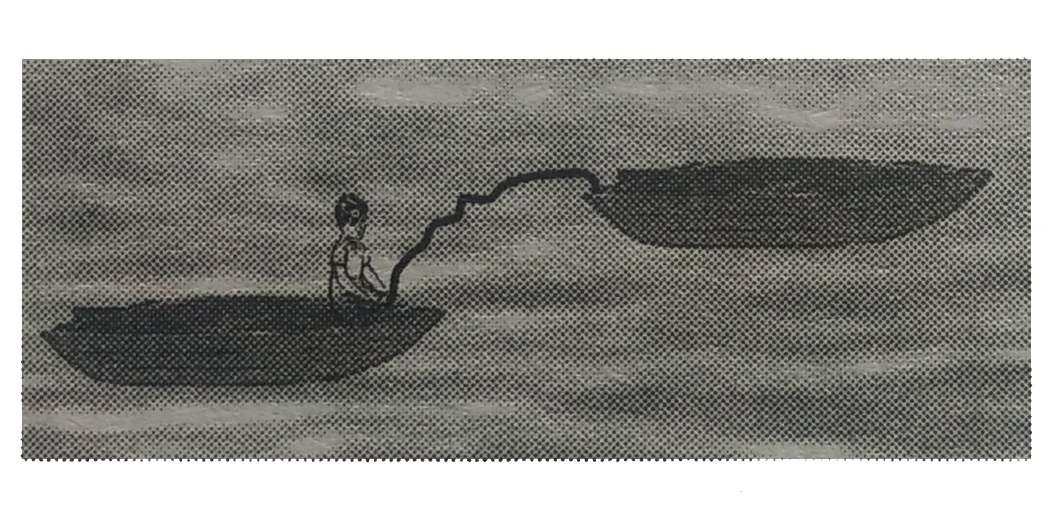
View SolutionIn order to raise a mass of 100kg a man of mass 60kg fastens a rope to it and passes the rope over a smooth pulley. He climbs the rope with acceleration `5g//4` relative to the rope. The tension in the rope is: Take `g=10m//s^(2)`
View SolutionIn the pulley-block arrangement shown in figure , find the relation between acceleration of blocks `A` and `B`
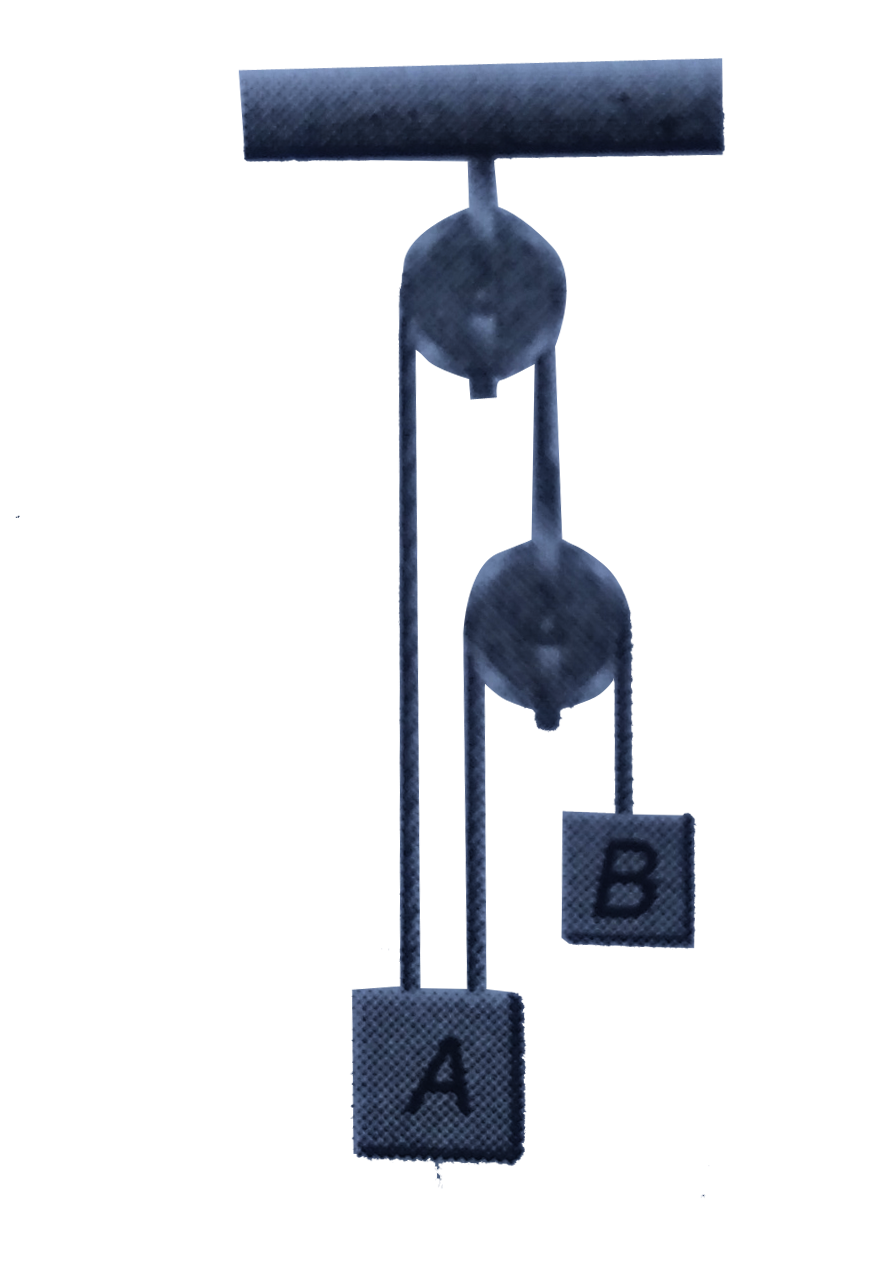
View SolutionThree equal weight `A,B` and `C` of mass `2kg` each are hanging on a string passing over a fixed frictionless pulley as shown in the figure. The tension in the string connecting weights `B` and `C` is approximately
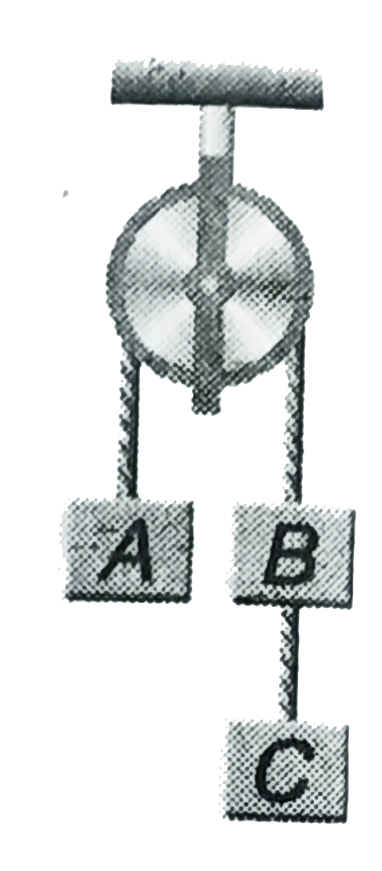
View SolutionIn the figure shown,`a_(3) = 6 m//s^(2)` (downwards) and `a_(2) = 4 m//s^(2)` (upwards) .Find acceleration of `1`
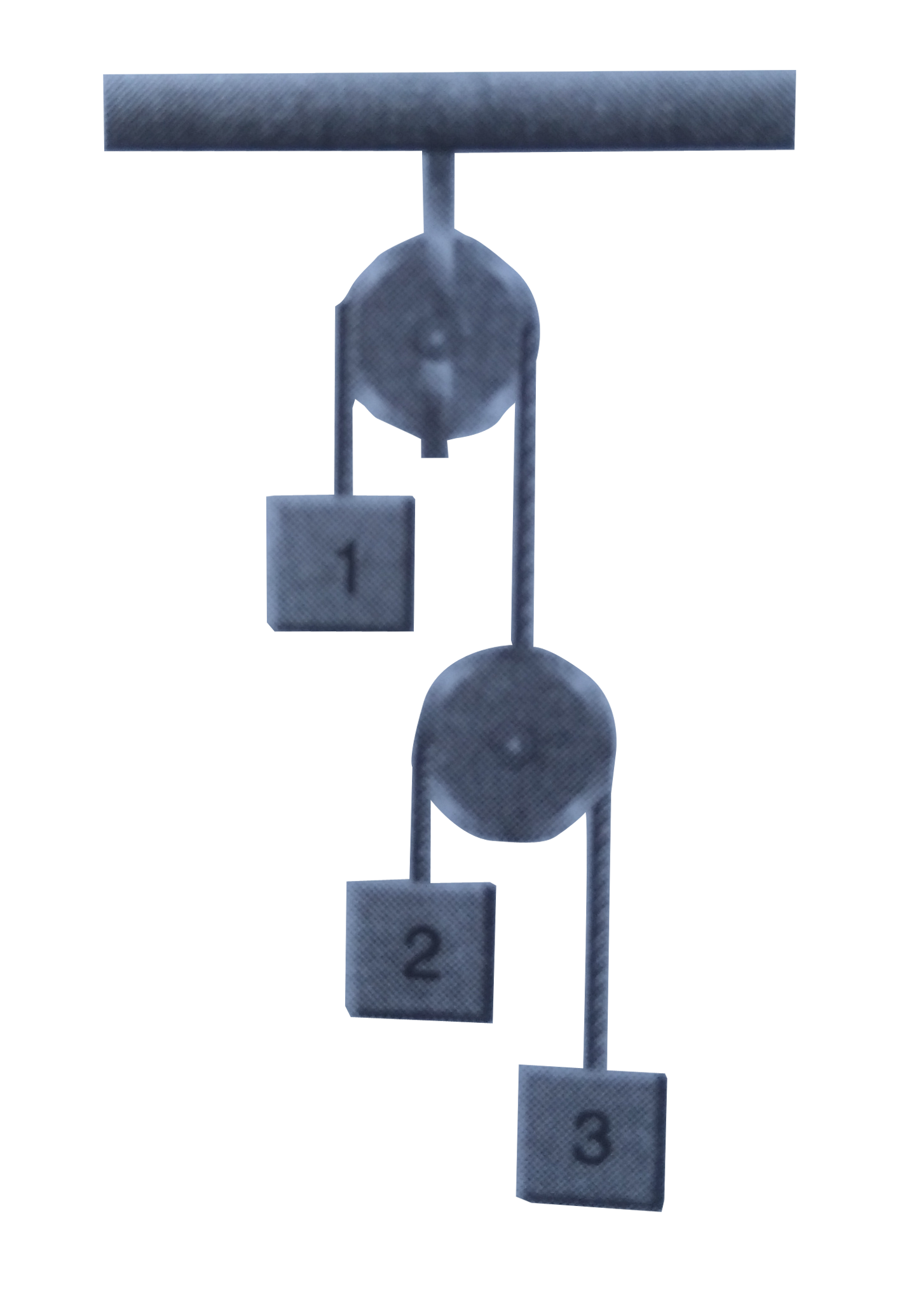
View SolutionA man of mass `m` stands on a platform of equal mass `m` and pulls himself by two ropes passing over pulleys as shown in figure.If he pulls each rope with a force equal to half his weight ,his upwards acceleration would be
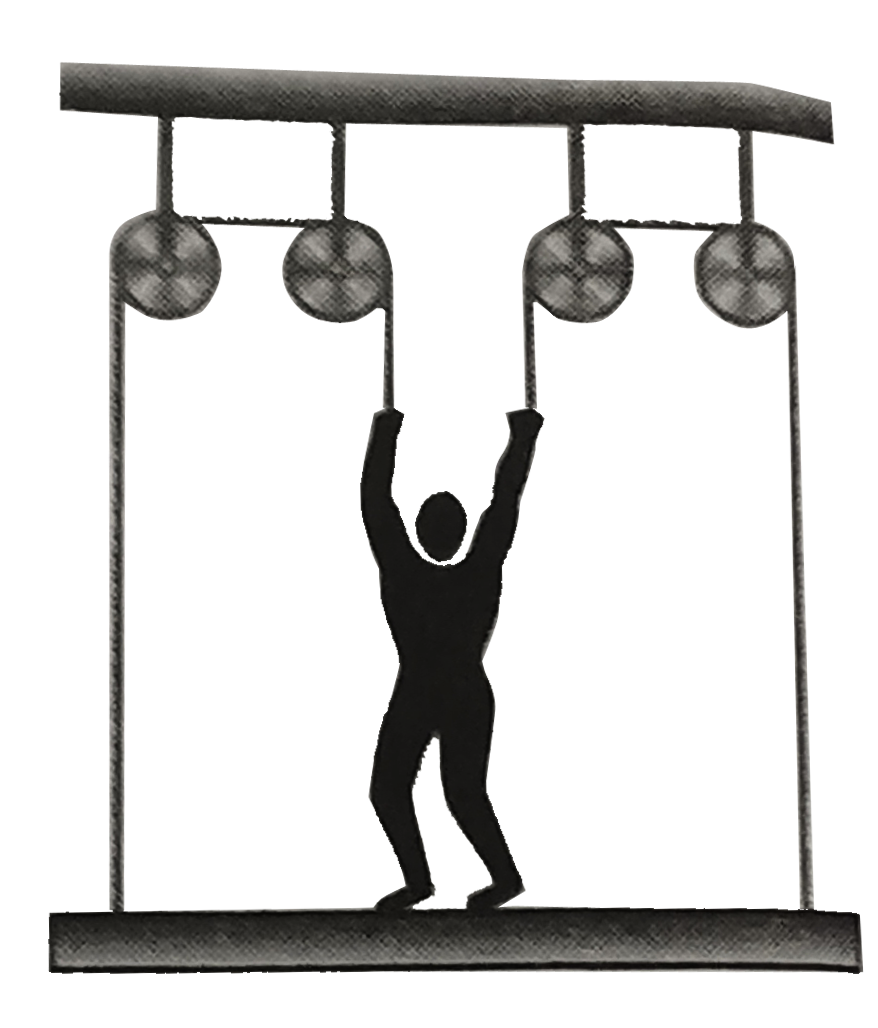
View SolutionA block is sliding along an inclined plane as shown in figure . If the acceleration of chamber is `a` as shown in figure. The time required to cover a distance `L` along inclined is
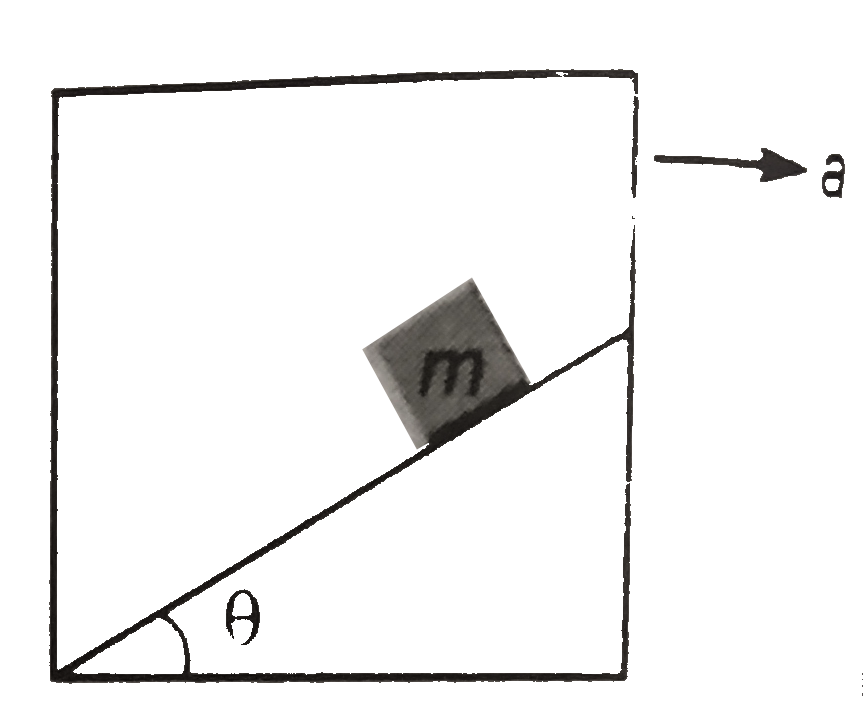
View SolutionAn inclined plane makes an angle `30^(@)` with the horizontal. A groove (OA) of length 5m cut in the plane makes an angle `30^(@)` with OX. A short smooth cylinder is free to slide down under the influence of gravity. The time taken by the cylinder to reach from A to O is `(g=10ms^(-2))`.
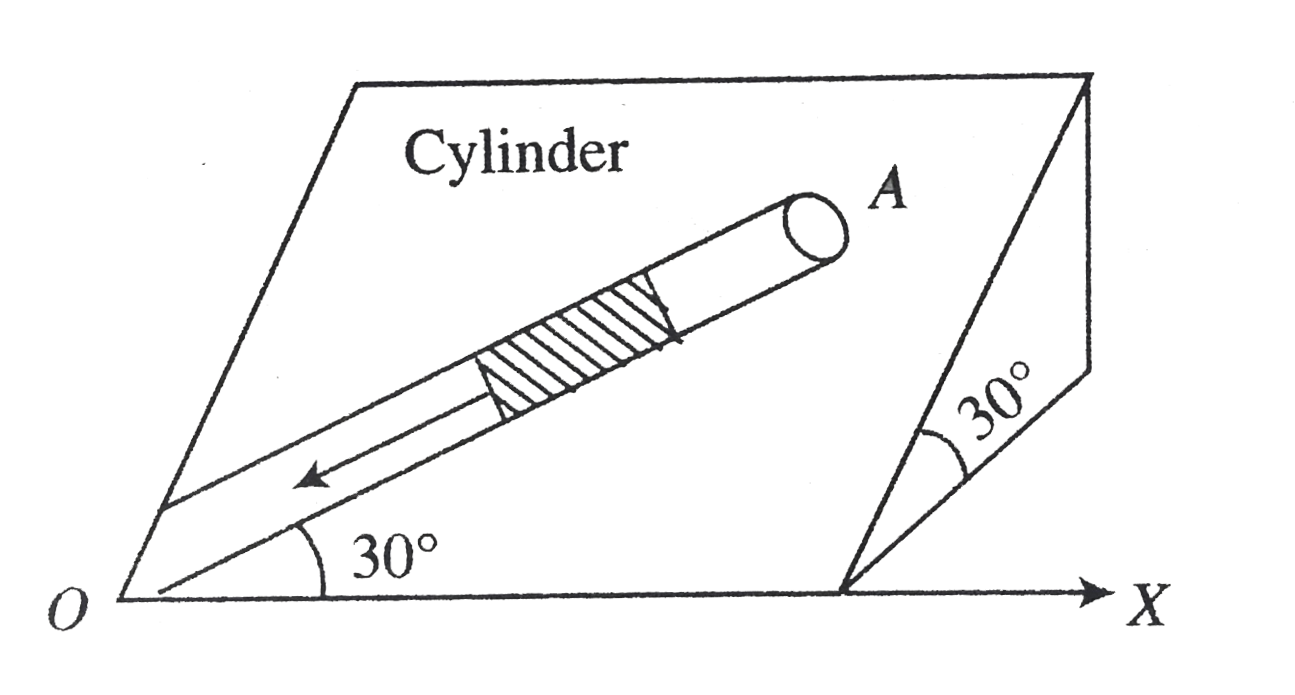
View SolutionTwo masses each equal to m are lying on x-axis at `(-a,0)(+a,0)` respectively as shown in figure They are connected by a light string A force F is applied at the origin along vertical direction As a result the masses move toward each other without loosing contact with ground What is the acceleration of each mass? Assume the instantanceous position of the masses as`(-x,0)`and `(x,0)`
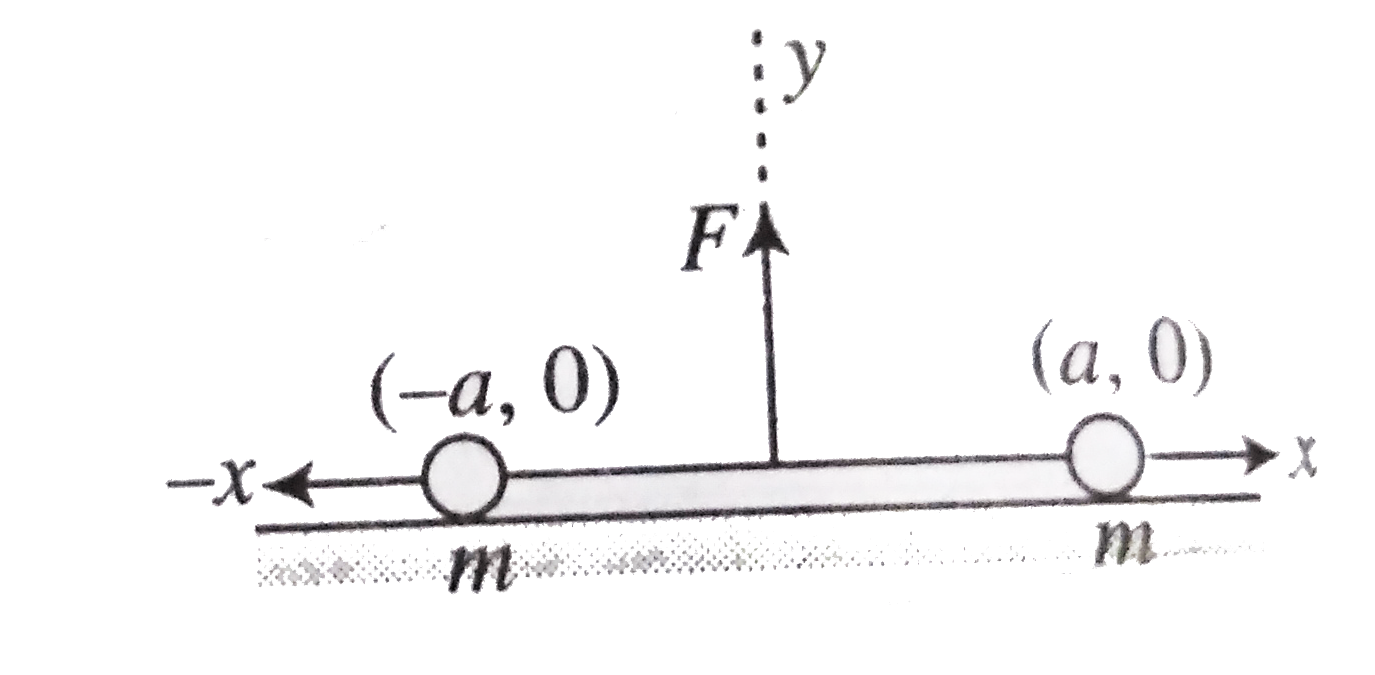
View SolutionA piece of wire is bent in the shape of a parabola `y = Kx^(2)` (y - axis vorical) with a bead of mass m on it . The beat can side on the wire without friction , it stays the wire is now accleated parallel to the bead , where the bead can stay at rest with repect to the wire from the y - axis is
View SolutionA block of mass `m = 4 kg` is placed over a rough inclined plane as shown in fig . The coefficient of friction between the block and the plane `mu = 0.5 ` A force `F = 10N` is applied on the block at an angle of `30^(@)`. Find the contact force between the block and the plane.
`k`

View SolutionA block of mass m slides down an inclined plane of inclination `theta` with uniform speed The coefficient of friction between the block and the plane is `mu`. The contact force between the block and the plane is .
View SolutionIn the pulley arrangement shown in Fig the pulley `p_(2)` is movable .Assuming the coefficient of friction between `m` and surface to be `muu` the minimum value of `M` for which `m` is at rest is
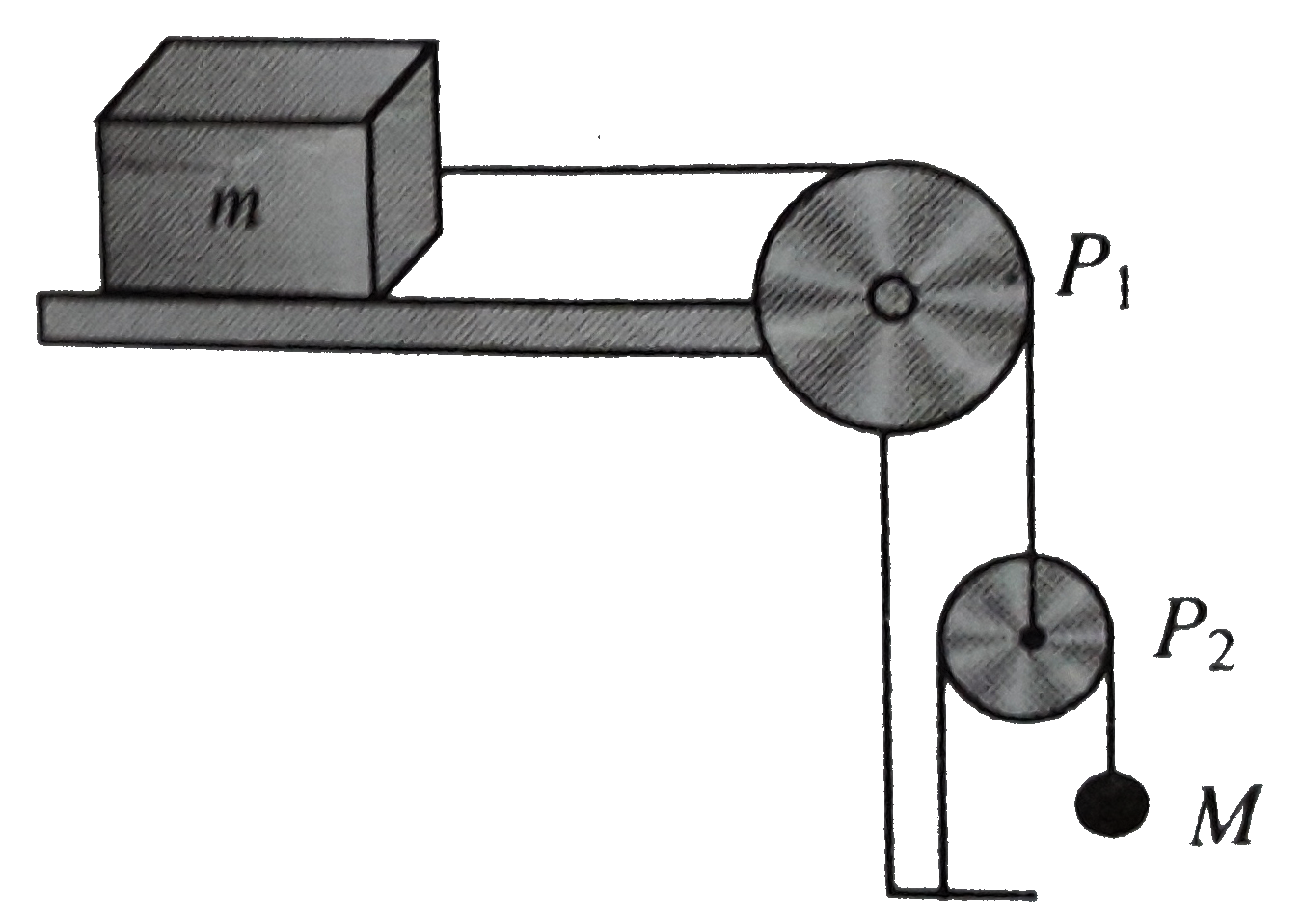
View SolutionOn an inclined plane of inclination angle `30^(@)`, a block is placed. It is observed that the force to drage the block along the plane upwards is smaller than the force required to lift it. The maximum value of coefficient of friction is .
View SolutionA body slides over an inclined plane of forming an angle of `45^(@)` with the horizontal. The distance x travelled by the body in time t is described by the equation `x=kt^(2)` where `k=1.732`. The coefficinet of friction between the body and the plane has a value .
View SolutionA system is pushed by a force `F` as shown in figure All surfaces are smooth except between `B` and `C` is `mu`. Minimum value fo `F` to prevent block `B` from down ward slipping is
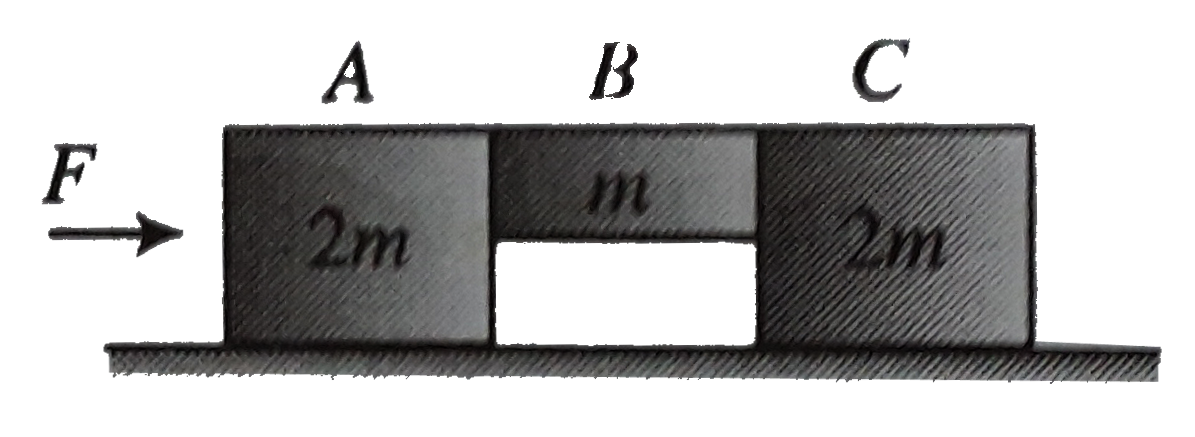
View SolutionTwo blocks `A` and `B` are separated by some distance and tied by a string as shown in the figure . The force of friction in both the blocks at `t = 2 s` is

View SolutionCoefficient of friction between two block shown in figure is `mu = 0.4`. The blocks are given velocities of `2 m//s` and `8 m//s` in the directions figure. Find
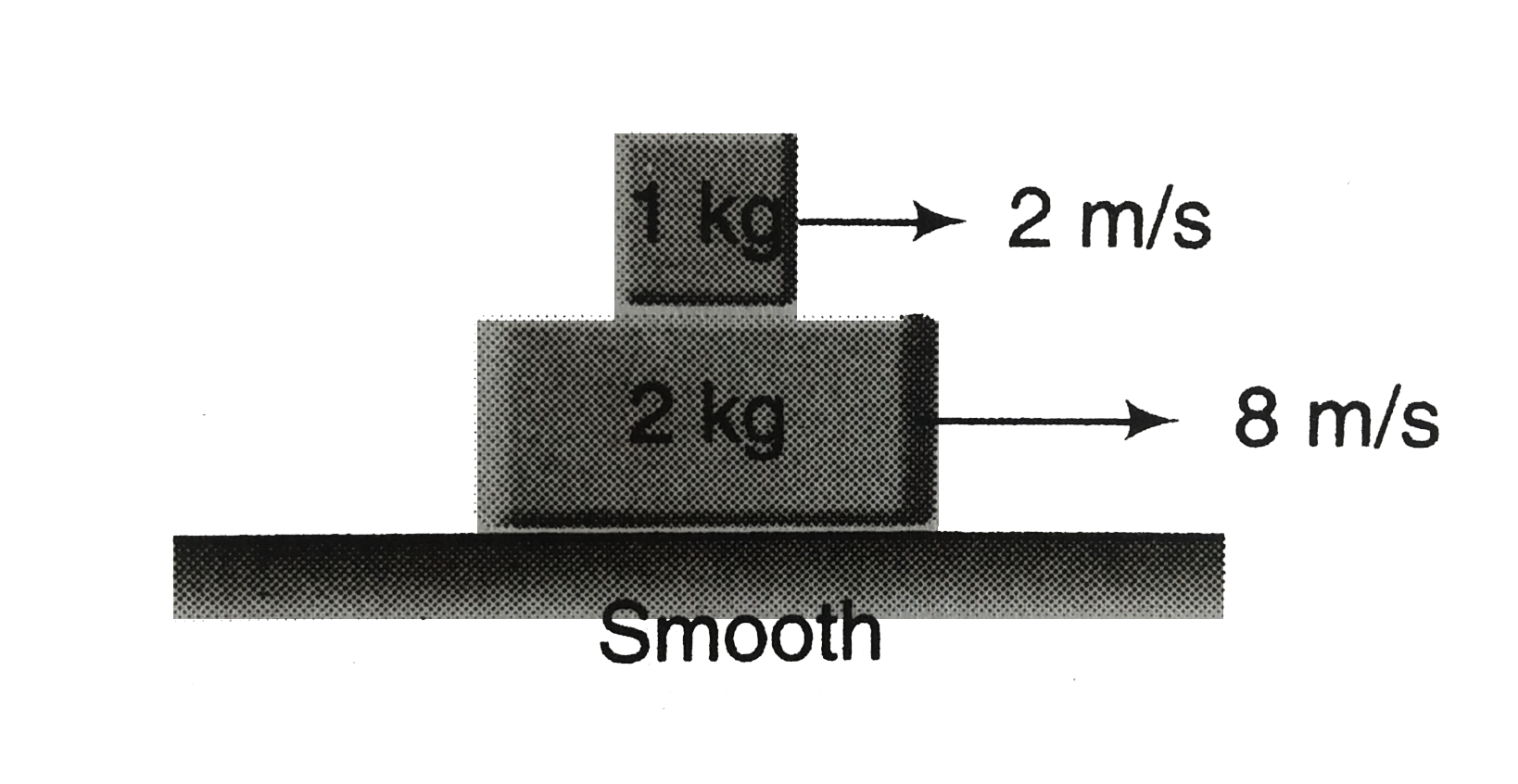
(a) The time when relative motion between them will stop
(b) the common velocities of blocks upto that instant. (c) Displacement of `1 kg` and `2 kg` block upto that instant `(g = 10 m//s^(2))`.
View SolutionCoefficient of friction between two block shown in figure is `mu = 0.4`. The blocks are given velocities of `2 m//s` and `8 m//s` in the directions figure. Find

(a) The time when relative motion between them will stop
(b) the common velocities of blocks upto that instant. (c) Displacement of `1 kg` and `2 kg` block upto that instant `(g = 10 m//s^(2))`.
View SolutionCoefficient of friction between two block shown in figure is `mu = 0.4`. The blocks are given velocities of `2 m//s` and `8 m//s` in the directions figure. Find

(a) The time when relative motion between them will stop
(b) the common velocities of blocks upto that instant. (c) Displacement of `1 kg` and `2 kg` block upto that instant `(g = 10 m//s^(2))`.
View SolutionA `2 kg` block is pressed against a rough wall by a force `F = 20 N` as shown in figure .Find acceleration of the block and force of friction acting on it .`(Take g = 10 m//s^(2))`
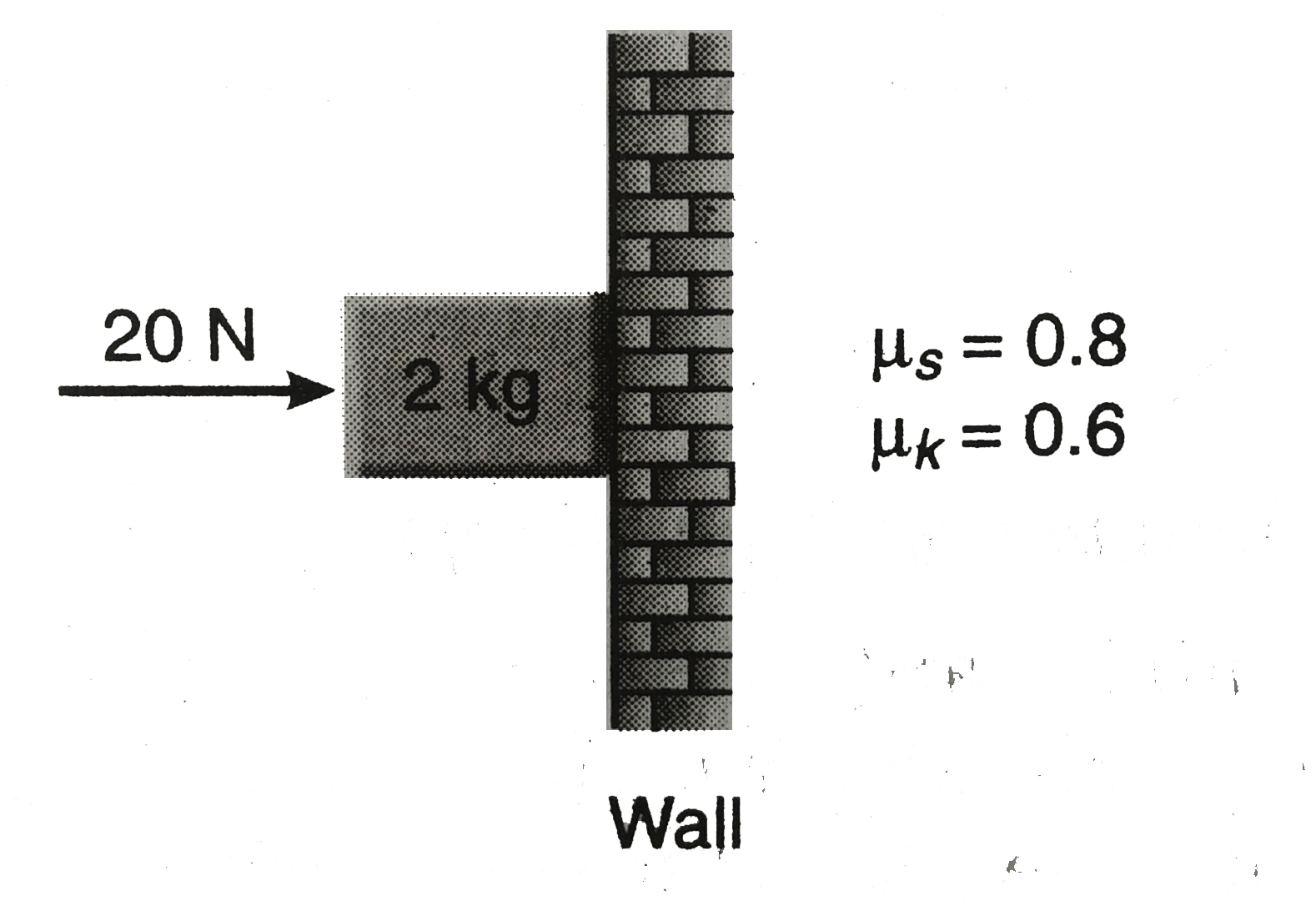
View SolutionThree blocks are kept as shown in figure Acceleration of `20 kg` block with respect to ground is
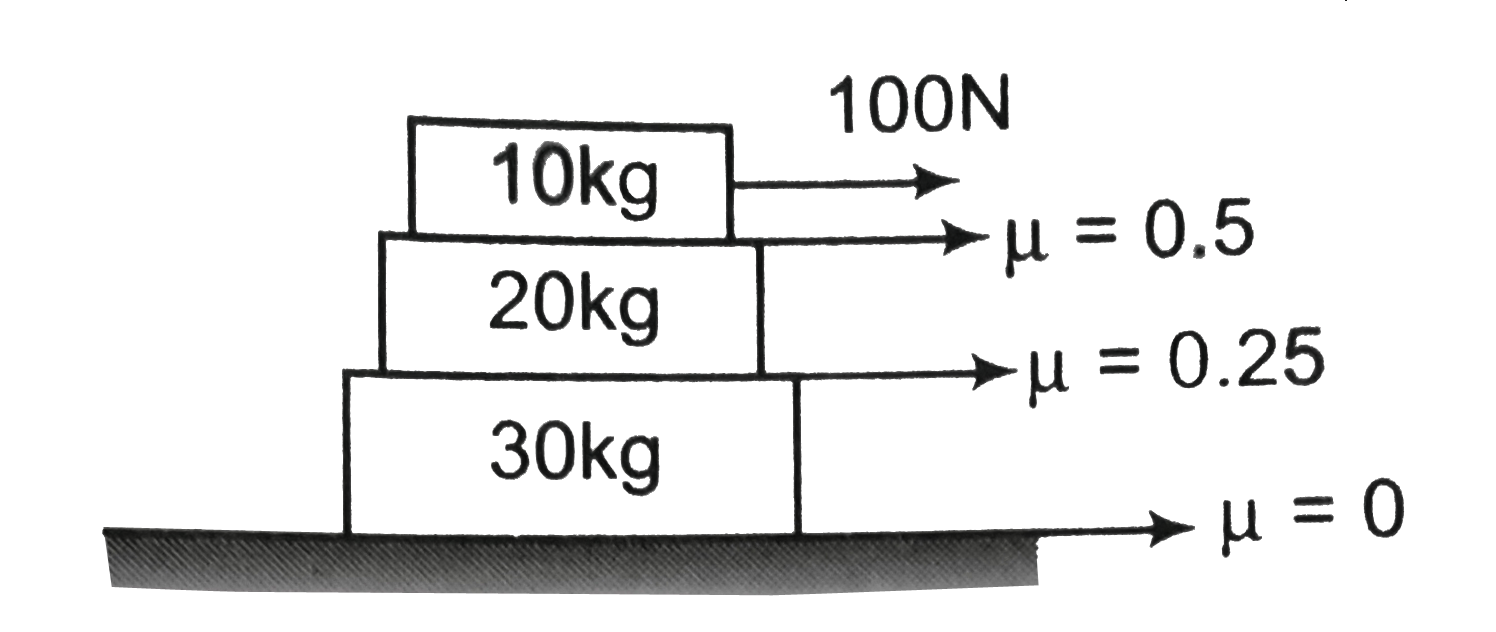
View SolutionA suitcase is gently dropped on a conveyor belt moving at `3ms^(-1)` If the coefficient of friction between the belt and suitcase is `0.5` how far will the suitcase move on the belt before coming to rest ?
View SolutionTwo block A and B of masses `6 kg` and `3 kg ` rest on a smooth horizontal surface as shown in figure If coefficient of friction between A and Bb is `0.4` the maximum horizontal force which can make them move without separation is
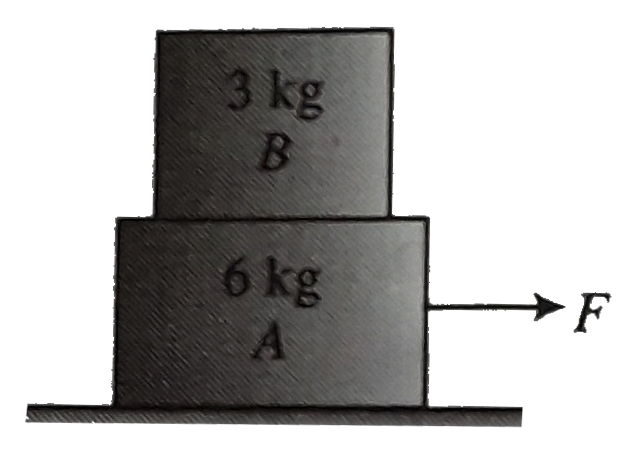
View SolutionFind the least horizontal force P to start motion of any part of the system of the three blocks resting upon one another as shown in figure The weights of blocks are `A = 300 N , B = 100 N` and `C = 200 N` .Between A and B , the coefficient of friction is `0.3` between B and C is `0.2` and between C and the ground is `0.1`
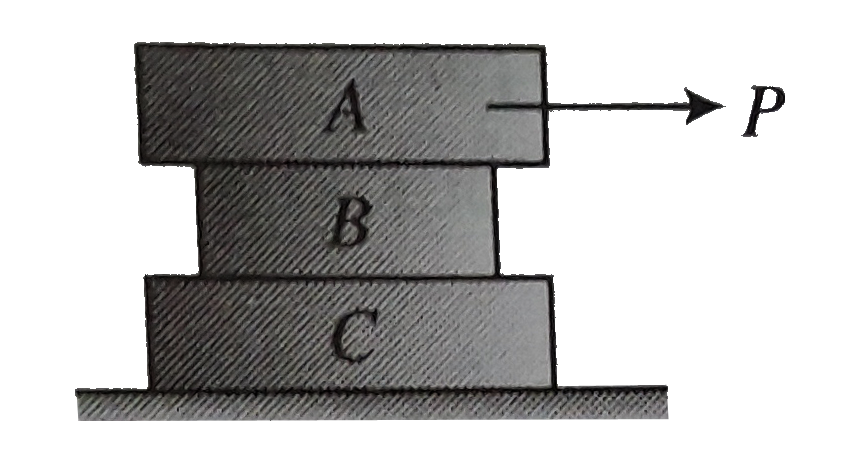
View SolutionDetermine the time in which the smaller block reaches other end of bigger block in figure
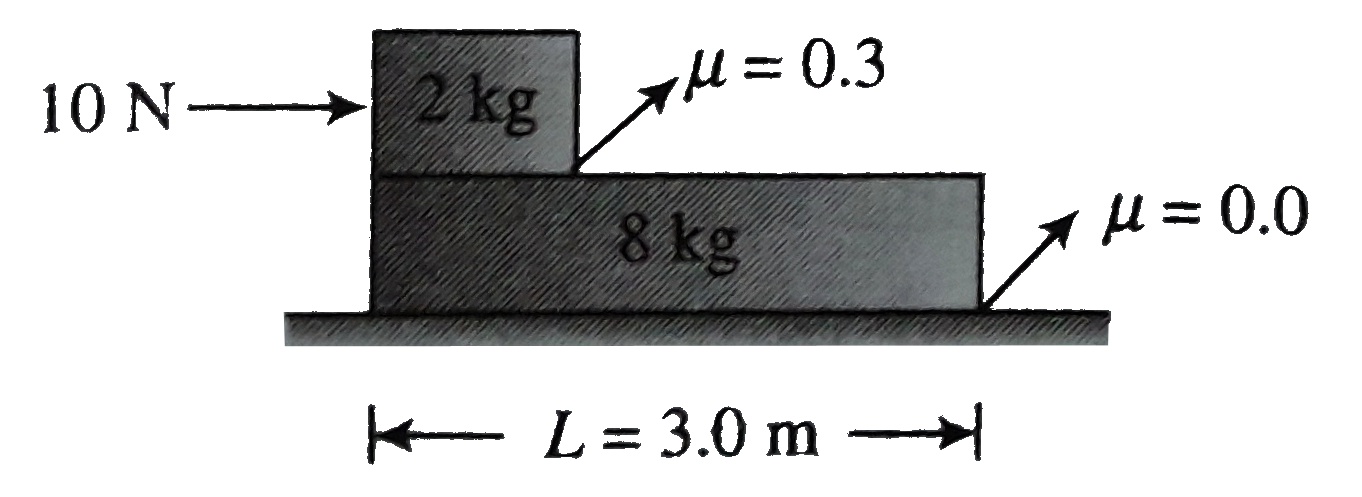
View SolutionA block of weight `W` is kept on a rough horizontal surface (friction coefficient `mu`). Two forces `W//2` each are applied as shown in the choose the correct statement
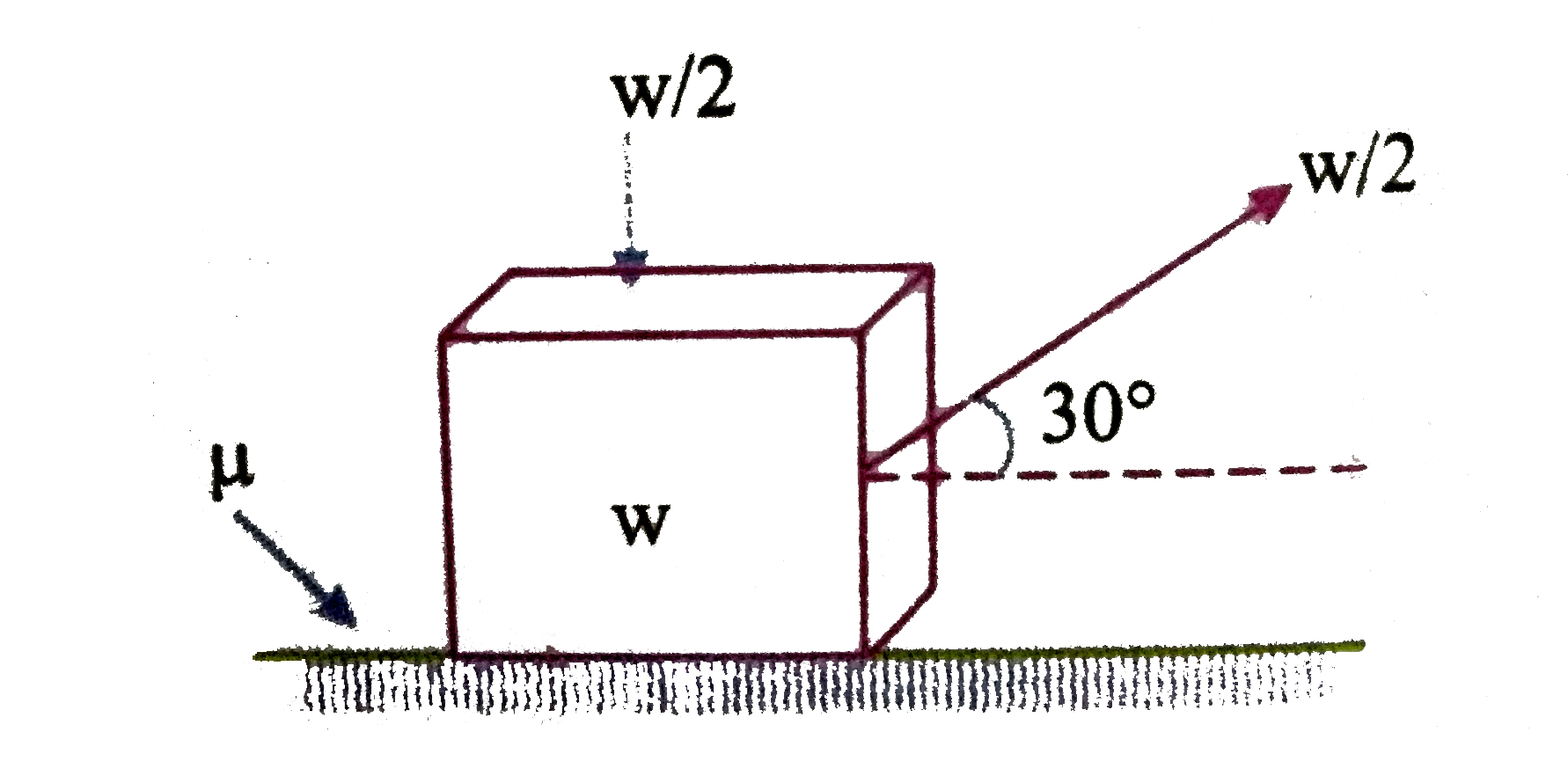 .
.
View SolutionA 2 kg block is placed over a 4 kg block and both are placed on a smooth horizontal surface. The coefficient of friction between the blocks is 0.20. Find the acceleration of the two blocks if a horizontal force of 12 N is applied to (a). the upper block, (b). the lower block. Take g=10 m/`s^2`.
View SolutionBlocks `A and B` shown in the figure are connected with a bar of negligible weight. `A and B` each has mass `170 kg` , the coefficient of friction between `A` and the plane is `0.2` and that between `B` and the plane is `0.4 (g = 10 ms_(-2))`

What is the total force of friction between the blocks and the plane?
View SolutionBlock `A and B` shown in the figure are connected with a bar of negligible weight. `A and B` each has mass `170 kg` , the coefficient of friction between `A` and the plane is `0.2` and that between `B` and the plane is `0.4 (g = 10 ms_(-2))`
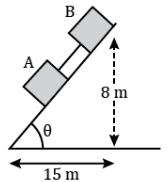
What is the force acting on the connecting bar?
View SolutionA block of mass `m` lying on a horizontal plane , is acted upon by a horizontal force p and another force `Q` inclined at an angle `theta` to the vertical .The block will remain in equilibrium if the coefficient of friction between it and the surface is (assume `p gt Q)`
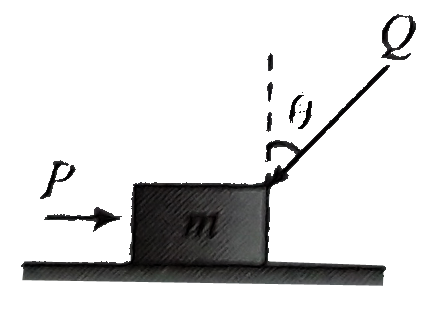
View Solution
LEVEL -III questions and complete solutions for chapter NEWTONS LAWS OF MOTION of NARAYANA PHYSICS (HINGLISH) of Class 11